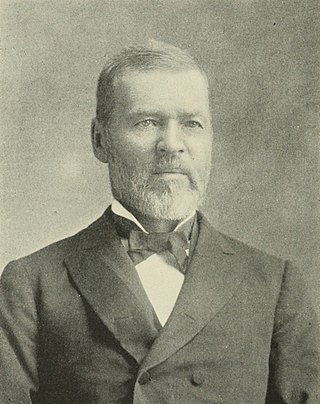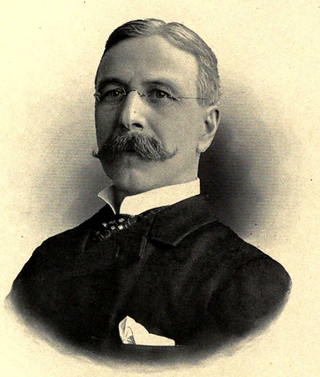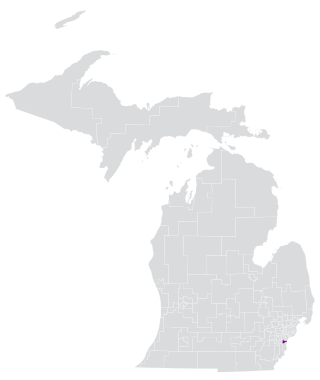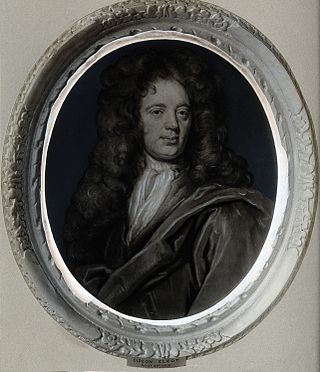
Charles Edward Munroe was an American chemist, discoverer of the Munroe effect, and chair of the department of chemistry at the George Washington University.
The Legislative Assembly of the Province of Canada was the lower house of the legislature for the Province of Canada, which consisted of the former provinces of Lower Canada, then known as Canada East and later the province of Quebec, and Upper Canada, then known as Canada West and later the province of Ontario. It was created by The Union Act of 1840.

John Henry Gear served as the 11th Governor of Iowa, a United States representative and a member of the United States Senate.

Pawtuckaway Lake is a 784-acre (3.17 km2) reservoir in Rockingham County in southeastern New Hampshire, United States, in the town of Nottingham. The lake is located in the Piscataqua River drainage basin.

The Delaware River Viaduct is a reinforced concrete railroad bridge across the Delaware River about two miles (3.2 km) south of the Delaware Water Gap that was built from 1908 to 1910 as part of the Lackawanna Cut-Off rail line. It is the sister to the line's larger Paulinskill Viaduct. The Delaware River Viaduct also crosses Interstate 80 on the east side of the river and Slateford Road and the Lackawanna Railroad's "Old Road" on the west (Pennsylvania) side. Abandoned in 1983, it is part of an Amtrak proposal to introduce passenger service between Scranton, Pennsylvania and New York City, a distance of 135 mi (217 km).
William Duncan Connor was a Canadian-born American politician and the 20th Lieutenant Governor of Wisconsin from 1907–1909.

Harry Burns Hutchins was the fourth president of the University of Michigan (1909–1920).
Charles Worrell was a lawyer, land owner and political figure in Prince Edward Island. He represented Kings County in the Legislative Assembly of Prince Edward Island from 1812 to 1825. Worrell died in London in 1858.
Bouarej is a village located on the eastern side of the Church Mountain, Beqaa.
The Submarine Boys, by Victor G. Durham, is a series of adventure books for boys, published by Henry Altemus Company, Philadelphia, Pennsylvania, from 1909 through 1920. The series featured three sixteen-year-old boys and their underwater adventures.

James Matthews Legaré was an American poet and inventor.
Chinook is a hamlet in southern Alberta, Canada within Special Area No. 3. It is located on Highway 9 approximately 119 kilometres (74 mi) northeast of Brooks.
Maidsville is an unincorporated community in Monongalia County, West Virginia, United States. Maidsville is located along West Virginia Route 100, 4.5 miles (7.2 km) north-northwest of downtown Morgantown.

Frank Villenueve Nicholson was an Australian Boer War veteran and rugby union player, a state and national representative who made two test appearances in 1903–1904, captaining the side on one occasion.

Joseph Brewster McCollum was a Pennsylvania lawyer and judge. He served as chief justice of the Supreme Court of Pennsylvania.

Michigan's 2nd House of Representatives district is a legislative district within the Michigan House of Representatives located in the northeastern portion of Wayne County, Michigan, including much of Detroit's East Side and the Cities of Grosse Pointe Farms, Grosse Pointe, and Grosse Pointe Park. The district was created in 1965, when the Michigan House of Representatives district naming scheme changed from a county-based system to a numerical one.

Gideon Eliot (1664-1713) of North Sintoun in Roxburghshire was an Edinburgh surgeon. He served as surgeons to the 26th Regiment of Foot. He was elected Deacon (President) of the Incorporation of Surgeons of Edinburgh on two occasions.
Alexander Monteith of Auldcathie (1660-1713) was an Edinburgh surgeon, who in his three terms as deacon (president) of the Incorporation of Surgeons of Edinburgh, presided over some of the most important changes in its history. These included obtaining the rights to perform anatomical dissection on the bodies of prisoners dying in jail, the granting of a royal charter by William and Mary in 1695, and the construction of the original Surgeons' Hall, the first permanent home of the Edinburgh Surgeons.
George William Ziemann was a German Christian missionary known for successfully establishing and running the Ghazipore Mission in India. He also did missionary work in many other parts of India for nearly 40 years, including Chupráh, Muzafferpore and Buxar, where he was able to spread Christian ideals to locals.
John B. Ritch III is a former American diplomat experienced on the congressional side of US foreign policy and in international business. After an early career as a captain in the US Army (1968–1972) and a staff adviser on the Senate Foreign Relations Committee (1972–1993), he was appointed by President of the United States Bill Clinton to serve as the United States Ambassador to the United Nations International Organizations in Vienna, a position he held from 1993 to 2001. Thereafter, as a business executive from 2001 to 2012, he headed the London-based trade association that encompasses the worldwide nuclear energy industry.








